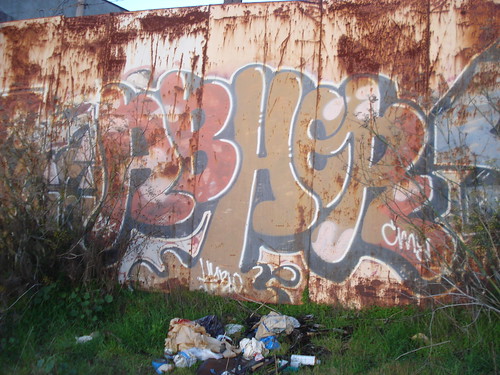I started thinking about this when we had to rewrite common cliches as something more descriptive, something better, for Creative Writing class. I remember that, when we got the assignment, I thought, "Why? What's the point?"
Obviously, the point was to develop a level of descriptive writing that enabled us to go beyond the cliches in daily life, in order to make our writing more interesting. But then something weird happened.
As I was working on the assignment, I found it pretty difficult to rewrite some of them. Surely, I could use synonyms and expand it into a longer, more flowery sentence, but it felt wrong. Like it never quite said what the cliche itself did. And I think that this was a larger point of the assignment: Can you write in such a way that cliches not only become irrelevant, but your work sounds better than them? For some of these, the answer was no. It was too hard. The cliches sounded way more natural.
And therein lies the problem. We, as a society, have become reliant on cliches. "Love at first sight" and "dead as a doornail" and the like are things that we have assimilated into our minds to mean and express certain things. Surely, these phrases had some real, genuine meaning and feeling to them, but now, the are overused, in effect, something we use, being jaded to romantic and descriptive language, since we're told as children to use more detail when we write. Those who hate it recoil to cliches, and those who don't can work past them.
But think about it. "Love at first sight" is a nice thing, and surely something that everyone wants. We can all imagine the feeling we would get if this happened to us, this wonderful, fluttery emotion that swells our hearts, and makes us feel things we have never truly felt before. But the cliche is easier to say. It takes less work. It gives us a general feeling that we can adapt to ourselves in the way we see fit.
I guess my main concern [and maybe I'm just insane and need to go back to bed], is that language is becoming disingenuous. That is, the things that make language beautiful, description, and wonderful words and the like, are being pushed aside in favour of more generalized phrases. For cliches. For example, to say "I hate this weather" is general. Sure, it is an accurate and valid way to describe your feelings, but how much do you hate the weather? Why? What is so horrible about it? Perhaps I am looking at this from the point of a view of a writer a little too much, but who uses the word abhor anymore? If you say it out loud, it's rough, kind of hard to pronounce because "b" and "h" aren't usually together. And it is in fact a synonym for "hate." So why does no one use this word? Hate is so general, when someone tells us "I hate this weather," we can use our imagination to decide how much that person hates the weather. But using a word that sounds harder, it is easier to discern just how much the person dislikes the weather.
Of course, tone and inflection are important in speech, but I'm looking at this from simply a word-by-word standpoint right now.
Now, I am not trying to say that I myself am not guilty of using cliches and generalized terms to get my point across. We all do and we always will. Just sometimes, when I talk to people in a class, I find that the conversation is something that is so common and unfeeling that I would rather talk to my dog, and all he does is bite my body. Just a concern of mine. I'm sure I'm insane or something.

When looking for this, I also found out there was a band named Abhor, and some porn, of course.
Whilst writing this, I discovered that "ingenuine" is in fact not a word. "Disingenuous" is the correct word when trying to describe the opposite of "genuine."
No comments:
Post a Comment